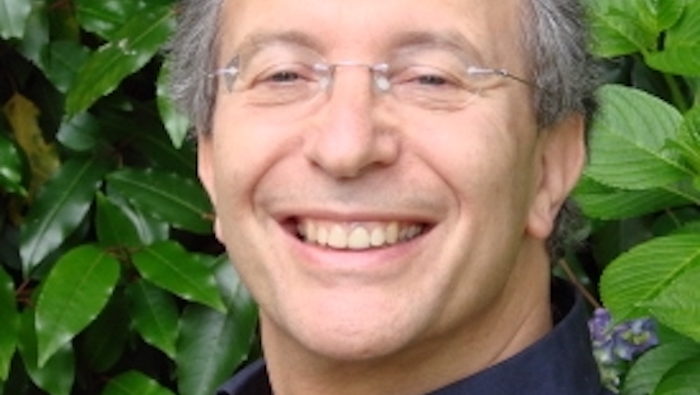
Ask the Author: David Sugarman

In this post for Ask the Author, Professor Linda Mulcahy interviews Lancaster University’s David Sugarman.
What does Socio-Legal Studies (SLS) do well and what more could it do?
Some of our best work confronts the powerful, calls out injustices, and provides the basis for a fairer way forward. It can also grant dignity to those to whom it has hitherto been denied and, when our world is divided so sharply, can empathically help people see the world through another’s eyes.
While welcoming the current heterogeneity of SLS, I’m concerned about the accompanying tendency towards academicisation, specialisation and balkanisation. There is a danger of the big questions becoming obscured and, in the absence of ongoing dialogue across the field, of sub-disciplinary tribalism flourishing.
The de-colonisation of Socio-Legal knowledge and research is also needed, so that it is no longer grounded largely in research concerned with WEIRD (white, educated, industrialised, rich, democratic) societies.
What are the best Socio-Legal publications you have read recently and why?
Anat Rosenberg, The Rise of Mass Advertising: Law, Enchantment, and the Cultural Boundaries of British Modernity. OUP, 2022.
A remarkable study providing a novel perspective on the role of law in shaping mass advertising and its place in society. Post-disciplinary, it is enlivened by a treasure trove of images.
Michael Lobban, Imperial Incarceration: Detention without trial in the making of British Colonial Africa. Cambridge University Press, 2021.
A painstaking work shedding new light on imprisonment without trial as a tool of imperial expansion in Africa. Essential reading for those interested in the rule of law, and a vital addition to the growing body of scholarship re-narrating Britain’s colonial history. It’s available online on an open access basis.
American Legal Education Abroad. Critical Histories. Susan Bartie and David Sandomierski, eds. NYU Press, 2021.
A critical history of the Americanisation of legal education in thirteen countries. It re-examines prevailing narratives of exportation, transplantation, and imperialism, challenging the conventional wisdom that American ideas and practices have dominated globally. A book to which I contributed a chapter.
Russell Sandberg, Subversive Legal History: A Manifesto for the Future of Legal Education. Routledge, 2021.
Claiming that ‘Everything law students think they know is a lie’, Sandberg argues that a ‘subversive’ historical approach at the heart of legal education can reinvigorate legal history and revolutionise Law Schools. Passionate and engaging, I strongly recommend it.
Maksymilian Del Mar, Artefacts of Legal Inquiry: The Value of Imagination in Adjudication. Bloomsbury, 2020.
A fascinating interdisciplinary investigation into the nature and role of imagination in legal inquiry. Del Mar’s characteristic verve, erudition, and analytic acuity makes this challenging read worth the effort.
Luke Taylor, Constructing the Family: Marriage and Work in Nineteenth-Century English Law. University of Toronto Press, 2022.
Taylor details how English law contributed to the separation of work and family, privileging productive over reproductive labour and a social order that continues to hold sway. Essential reading for those interested in the legal-discursive framework governing work and family relations.
Finally, I mention two publications beyond the Socio-Legal field. Eavan Boland (New Collected Poems, Carcanet, 2005) writes movingly about the female experience and the complexities of nationhood and identity, whilst Lyndall Gordon (The Hyacinth Girl: T.S. Eliot’s Hidden Muse, Virago, 2022) connects Eliot to women who paid dearly for their contribution to his success and is an object lesson on how to write about “the women behind the man”.
What research are you doing or planning?
Histories of English Law and Society, 1600-2020. Transcending Disciplinary Tribalism. Hart Publishing, 2024.
Advocating a critical, inter-disciplinary, internationally informed history of law and society, this book scrutinizes the interplay between law, society and the current state of English legal history. Topics examined include law, property and economy; social hierarchy, gender and race; colonialism and empire; lawyers, business and politics; legal education; law in literature; legal biography; law and the visual; and the theory and method of legal history. It demonstrates how more holistic histories of law and society might be achieved and why this is important.
Prosecuting Pinochet.
This book reveals and assesses the hidden history of the Pinochet case (1998-2000), the interplay between law and politics and the efficacy of human rights. Based, in part, on over 250 interviews with the key actors and archival research in ten countries.
Prominent Law Professors speak about their Lives and about University Legal Education and Scholarship in England, c.1930 to 1990.
A book of edited interviews with eighteen prominent UK law teachers born between 1903 and 1943 who reflect on their personal and intellectual biographies, the influences on their thinking and the evolution of university legal education and scholarship.
Advice for aspiring Socio-Legal scholars
Follow what you enjoy and ask the research questions you think are important, embrace interdisciplinary topics and approaches, and don’t be deterred by others’ scepticism. Be eclectic. Most important questions cannot be resolved with just one kind of expertise. Think for yourself, not by yourself. Email researchers and anyone else whose work speaks to you, even if only to share your appreciation. This can be scary, but be brave, reach out, and create opportunities. You never know which door will open.

